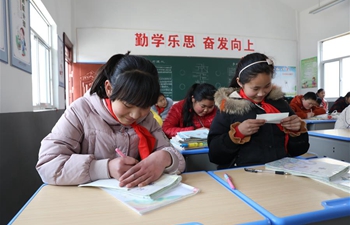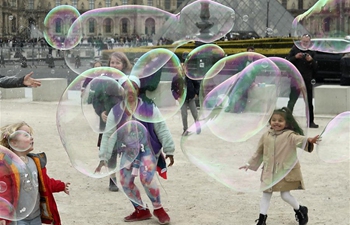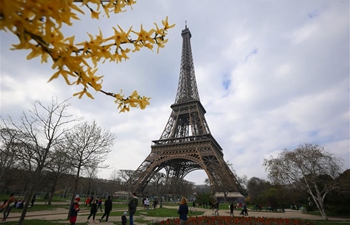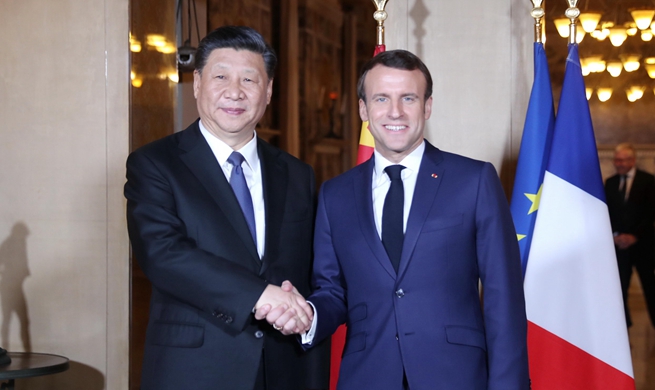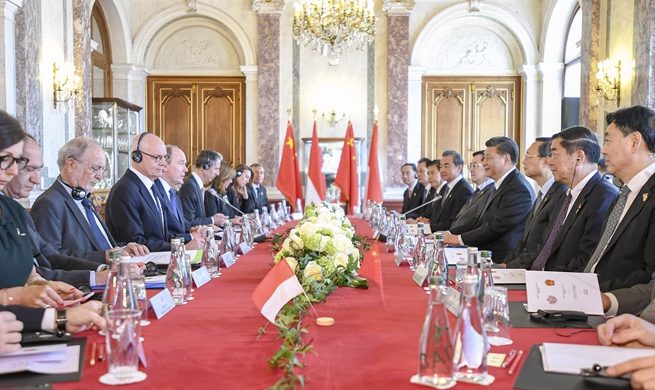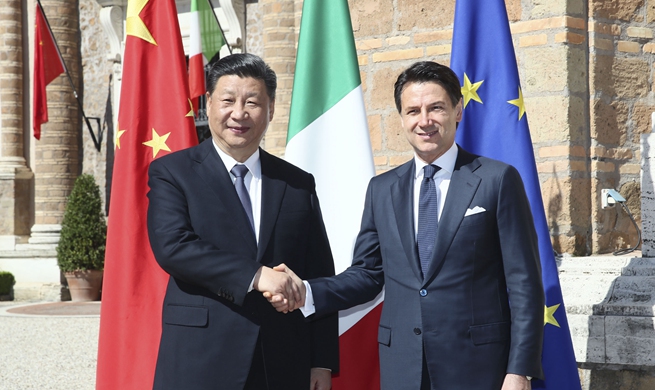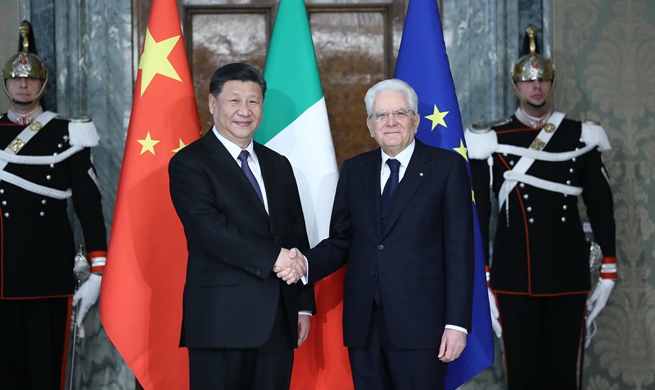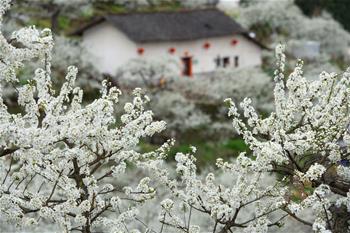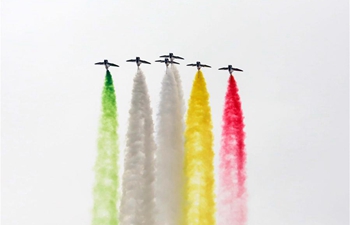CHENGDU, March 25 (Xinhua) -- Roberto Castellani was quick to point out the differences between Chinese wine buyers 15 years ago and now.
The 78-year-old owner of an Italian wine company attended the 100th China Food & Drinks Fair, held in Chengdu, capital of southwest China's Sichuan Province, from March 21 to 23 this year. This was his 32nd visit to the fair.
Over 4,000 companies from 40 countries and regions participated in the fair, which is held twice every year.
The Chinese people's understanding of wines has dramatically changed over the last few years, he said.
"About 15 years ago, I saw with my own eyes people pouring coca cola and soda water into wine that I brought to China, and then chugging it. People were always asking me for the cheapest wine. I almost felt despair," said Castellani.
This year he brought a high-end brand that sells for as much as 134 U.S. dollars a bottle, and he is worried about the sales.
Now when people come to wine fairs, they are almost like professional tasters and can tell the subtlety between wines, he said. It is time to bring quality wine to China, he added.
Suning.com, an e-commerce platform in China, said it sold about 300 million yuan of wine in 2018, about 60 percent of which were imported. More than 65 percent of the imported wine cost 300 yuan (about 45 U.S. dollars) per bottle.
"Chinese consumers have become more savvy and shrewd, and gone are the days when the distributors banked on the lack of knowledge of the buyers and made huge money," said Zhu Feng, general manager of Banniere, a Chongqing-based wine importer and exporter.
The company sold 320 million yuan of imported wine last year, Zhu said.
"In previous years, I saw people carry paper boards that said ten yuan (1.5 U.S. dollars) per bottle at the fair, and I haven't seen any of that over the past few years." Competition in the sales of cheap wines is fierce, so a growing number of sellers and buyers have turned to quality wines, he said.
"Before, people liked to buy cheap wines that have foreign names. Now, at the fair, they come to ask me about whether the wine was bottled in China or the country of origin. Quality wines have a good market prospect in China," said Zhang Bo, who imports wine from Canada.
Chinese wine-makers are also building quality brands as they seek to woo buyers.
Chinese wine imports were 687.5 million liters last year, a year-on-year drop of 8.26 percent for the first time since 2014, according to the Ministry of Commerce website. Meanwhile, the value of imports rose by 2.12 percent to 2.85 billion U.S. dollars.
"The market is becoming more polarised, and shifting fast," said Yang, a wine importer from Guangzhou.
"At the low-end level, cheap wines still sell. Upstream, the consumers are getting picky, and they like non-generic quality wines that are produced for a specific group of buyers," he said.




